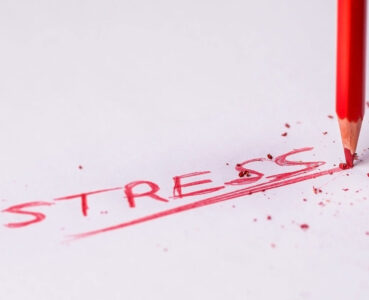 Stress oftentimes gets a bad rap, and we completely understand why. When you’re stressed, your cortisol levels rise, and that can cause a host of issues inside your body, especially if this stress becomes chronic. However, stress isn’t all bad.
Stress oftentimes gets a bad rap, and we completely understand why. When you’re stressed, your cortisol levels rise, and that can cause a host of issues inside your body, especially if this stress becomes chronic. However, stress isn’t all bad.
As the old adage goes, “No pressure, no diamonds,” and we see that play out all the time in the real world. We see sports teams execute plays perfectly in the final seconds of a close game. We see students hone their focus when taking a mid-term test. A little stress can hone our focus and allow us to trust all the work we’ve put in ahead of time. When we think of it this way, a little stress in the operating room can be a great thing.
Stress During Surgery
A recent study out of Lyon wanted to get a better understanding of how stress impacts surgeons and procedural outcomes. For the study, researchers tracked heart rate variability (HRV), specifically the low-frequency to high-frequency (LF/HF) ratio, which reflects sympathovagal balance. HRV was measured for the first five minutes of an operation across a total of 793 surgeries.
After looking at the results, researchers found that increased surgeon sympathovagal balance during the first five minutes of surgery was associated with significantly reduced major surgical complications. A non-significant reduction in ICU stay and mortality were also observed. The findings suggest that increased surgeon stress at the beginning of the procedure was associated with improved clinical outcomes. Researchers also pointed out that this increase in stress was simply due to the surgical undertaking, and not due to an unexpected event or complication with the procedure.
Dr. Silverman Comments
I track by heart rate variability and stress every day. Similar to many of the surgeons in this study, my stress level increases during surgery. My Whoop activity tracker has the ability to track a whole laundry list of physiologic factors, and it allows me to see how my stress levels fluctuate throughout the day. It also has the ability to send reminders to practice breathing exercises or relaxation techniques when it notices I’m showing indications of stress.
Heart rate variability is an interesting measure to track, especially because I was once told that “surgeons have higher heart rate spikes on the golf course than in surgery.” And while I’ve never actually seen that study, that notion makes some sense when we apply the findings in this study.
At a very basic level, surgery is much more stressful than golf, so how can the above statement be true? As we noted above, a little stress can be a good thing because it can force us to focus and rely on our training. I’ve dedicated most of my life to improving my understanding and my skills as a surgeon, and while that doesn’t change the stakes of surgery, it has left me completely prepared to carry out the task at hand. That stress we feel at the beginning of surgery is a good thing, and it allows us to better focus at achieving the best outcomes because we lean on the decades of experience that has led up to this moment.
Conversely, I can count on one hand how many times I’ve tried to split a pair of trees and land the perfect shot with a 7-iron onto a down-sloped green surrounded by sand traps. The stakes are much lower compared to surgery, but given my lack of experience in this arena, being in this position certainly would cause a spike in HRV, and I wouldn’t have past successes to fall back on in the moment. It’s certainly possible that this moment would in fact feel more stressful than the first few minutes of a procedure to a trained surgeon.
With that said, golf isn’t my preferred outlet when I’m not in surgery. I’d much rather find a gateway to relieve stress than to take on a hobby that may end up bringing on an even larger stress burden. This is why you’ll find me at the Crossfit gym, not the golf course when I’m looking to relax and destress!